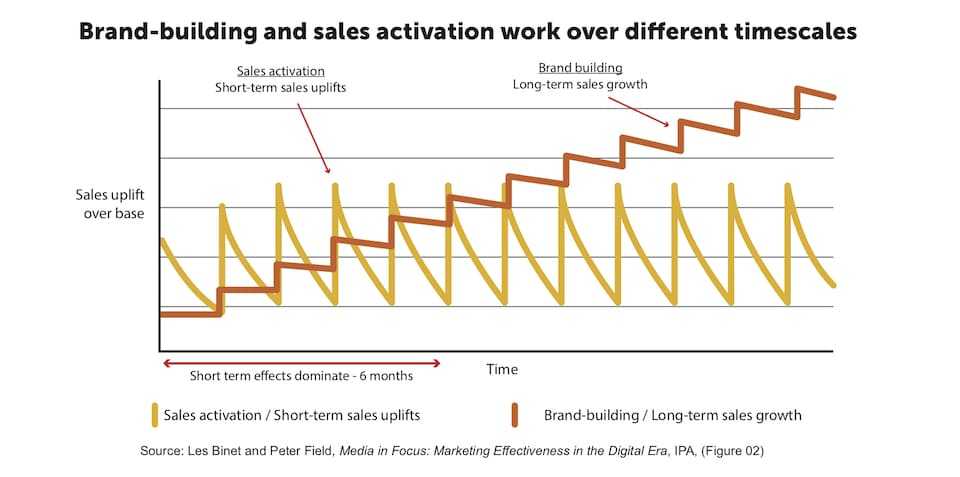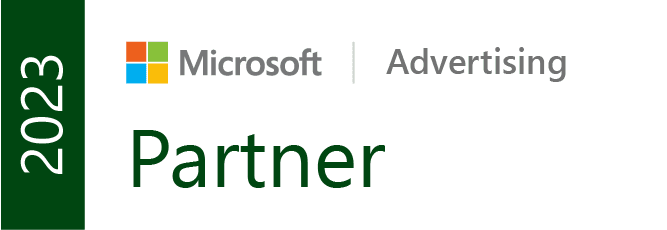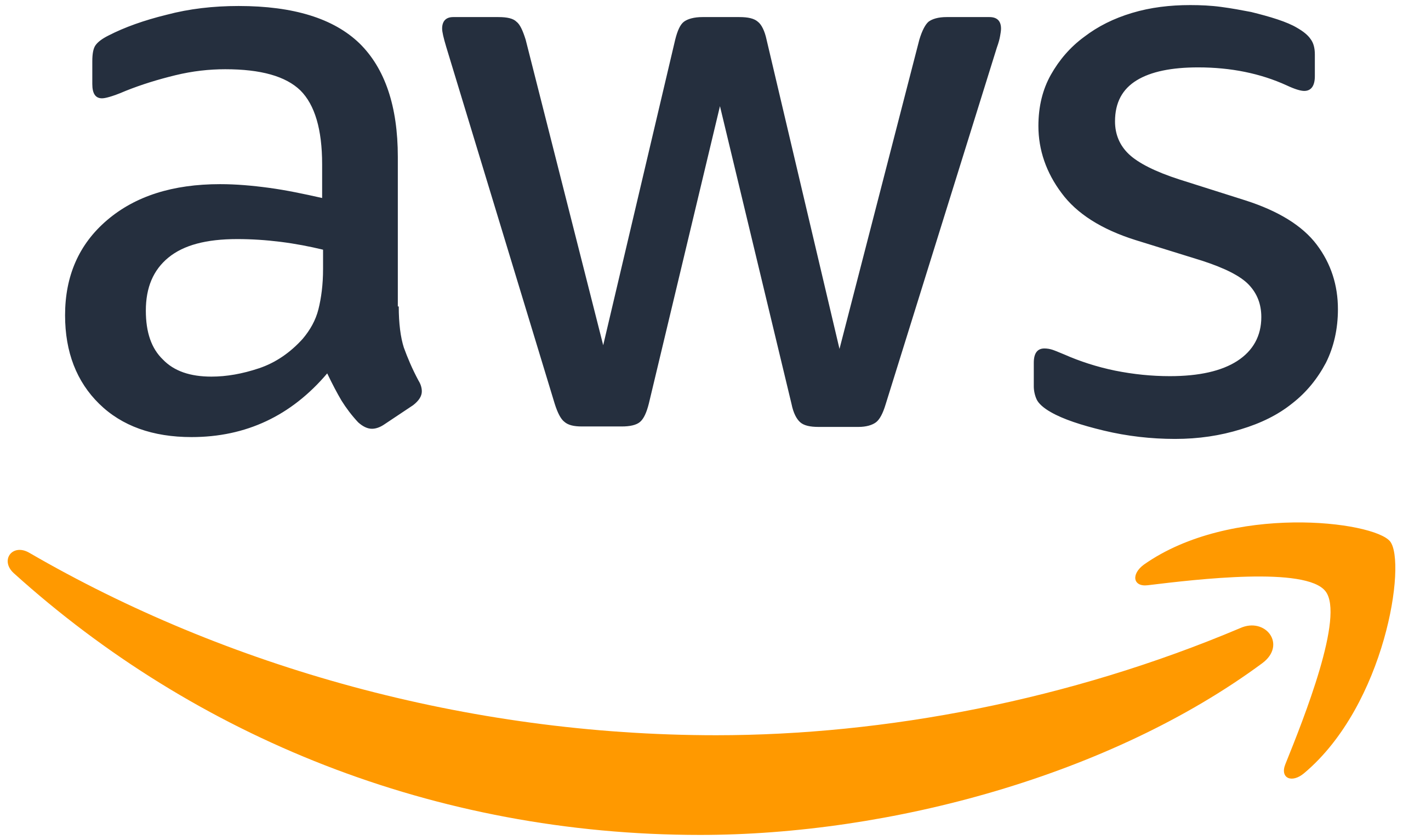I’ve been inspired by many far superior marketing minds in the last 12 months. Without even realising it (until now) they have all connected around a similar subject centred on marketing effectiveness.
In this article I share some of these words of wisdom, and thoughts of my own, as I navigate the world of marketing purpose and success.
Do you have a marketing strategy?
When clients come to us they have in effect already chosen a tactical application of their marketing budget. Working in digital marketing communications we are a tactical output, rather than an agency operating in the strategic marketing space. This may seem controversial because we aim to be strategic in our advice and recommendations, but ultimately, in the sphere of marketing we are still the result of a tactical marketing decision.
That being said, I pride myself on being able to lift myself above the tactical decision making that digital marketing exists within and share my experiences and knowledge gathering with other marketers looking to be more strategic with their marketing decisions.
To explain why this is the case, I draw on the many presentations of Mark Ritson, who stresses that strategy is the middle part of marketing:
- Before it, comes understanding the market (diagnosis)
- [Strategy is here]
- After it, comes the tactics (implementation)
Strategy requires these three things:
- Clear targeting (who)
- Distinctive positioning (what)
- Strategic objectives (12 month view) (why)
Strategy is often the ‘what do we not do’ view as trying to do everything to everyone will lead to failure. Overall it defines the choices about what you will do, and what you won’t.
For more on this topic, hear from the man himself on this Everyone Hates Marketers podcast.
Ideally, before reaching out to us, our clients should have a marketing strategy which clearly outlines targeting, positioning and objectives. If they haven’t then we’ll be happy to work with them to flesh these out, but the importance of this exercise should never be under-estimated.
Marketing isn’t only about digital marketing
Similarly, marketing communications (promotion) is just one of the 4 Ps in E. Jerome McCarthy’s infamous marketing framework.
Price, Product, Promotion and Place can all have an impact on marketing’s success against the business objectives. We’re thrilled that promotion gets such huge airtime and support from marketing budgets, but it’s important not to lose sight of the other elements that could hold equal, if not better impact on the bottom line.
I’ve attended a few sessions hosted by Baker Richards at the Visitor and Attraction Conference, and they’ve certainly catapulted the value pricing strategy can have on marketing performance. If you work in ecommerce, ticket sales or subscriptions, thinking about your pricing strategy could be transformative, more so than CRO or PPC optimisation.
Access to digital distribution via websites, shopping platforms and affiliates has exploded ‘Place’ options since the model’s inception in the 1960s, and unsurprisingly the past 12 months has seen a big rise in ecommerce compared to physical retail.
The trend towards direct-to-consumer (DTC) marketing has not gone unnoticed by FMCG brands for example. We’re working with a few of our clients in this space to improve their direct to customer relationships via digital.
Marketing efficiency vs. effectiveness: which is more important?
After looking at our own agency positioning recently I’ve stumbled on a few headlines which have made me sit up and pay attention to just how much the ‘digital-first’ approach to marketing is impacting on our profession.
The advertising industry is suffering from an efficiency bubble. Data-driven digital advertising has been highly efficient at driving short term metrics…. However industry experts warn that a focus on efficiency and an immediate return on investment means advertisers are putting long term effectiveness and creative bravery at risk
Advertising is in crisis, but it’s not because it doesn’t work
The obsession with digital marketing communications and tactics has reduced our profession down to one focused on efficiencies. We’re all striving for excellent ROI, but do we appreciate at what cost we are willing to sacrifice volume over efficiency?
I wrote a piece last year on a similar topic, although at the time I didn’t consider that ‘effectiveness’ was a better definition of the problem I was trying to illustrate. Click on the button below to read more.
Rory Sutherland has been a very influential thinker in my journey to enlightenment on efficiency vs. effectiveness. Constantly berating the economist view that we make logical decisions based on evidence; that people in business know perfectly well that advertising creativity works, but they don’t feel comfortable with the fact because it’s psychological not rational; and that if a product isn’t selling you only have two options: make it better or drop the price.
The field of behavioral economics is testament to the economist view being totally out of place in the world of marketing, and that boiling decisions down to efficiency is not the right path to take.
Marketing is one of those complex fields of human activity, like military strategy or sex, where efficiency and effectiveness are poorly correlated.
I’ve thoroughly enjoyed reading Rory’s book Alchemy. The surprising power of ideas that don’t make sense. I’d definitely recommend it to every marketer as it’s full of brilliant examples where creativity, irrationality and magic are far more effective in delivering commercial success. Far more entertaining too!!
The importance of short term and long term marketing decision making
Rory’s sentiments are also echoed by the brilliant work of Les Binet and Peter Field, who are renowned for their ‘Long and Short of It’ report which explores how campaign results develop over time, and highlights the growing tension between short-term response activity and long-term brand building.
Increasingly, there is a tendency to use very short-term online metrics as primary performance measures and this has dangerous implications for long-term success. Anyone involved in the complex world of multi-channel campaign development and evaluation needs to have a clear understanding of how short-term and long-term effects are different.
Their work has repeatedly shown that the average sweet spot for marketing investment is around 60% on brand building, and 40% on activation - so why are we all so fixated on activation?

As a digital marketing agency with a focus on performance we are clearly more comfortable at the activation end of the scale. Optimising campaigns and websites to improve ROI is in our DNA, but we also know when the pursuit of efficiency can affect the overall commercial success of a campaign.
Only recently we were speaking to a client about when to cease advertising on search terms - with the decisions based on ‘definite heavy loss to profit’, ‘loss making but not major’ or ‘borderline profitable’. Their answer was simple, they would rather see their overall net profit steadily increase at the sacrifice of some efficiencies, than have their ROI maximised to within an inch of its life and their profit leaner.
We like clients like this 😊
Knowing when to stop being too granular in our assessment of performance is also important, as on a minutiae level the costs are minimal per keyword (for example), but collectively they could be fairly significant. Staying true to the objective of profitable growth, sometimes efficiency needs to be sacrificed for the pursuit of incremental gains.
The other aspect of this research is centred on brand building. Another topic I explored many years ago, here at Adido, when I was introduced to the classifications of brand builders and transactors.
Whilst I never lost sight of this dichotomy, it’s all too easy to slip back into the transacting planner mindset and place greater emphasis on short-termism over longevity.
I would also like to stress though that like many marketers in their own roles, as an agency we sometimes only have a short window to prove our worth to our clients, and activation metrics like sales, conversion rates and immediate-ROI are quicker to obtain and easier to measure. That being said, it's important still to have long term benefits on the radar and in the armory.
The best ROI always comes from a marketing budget of zero. But zero marketing budget probably won’t be very effective…
The other example of short term vs. long term impact of marketing decision making is pretty poignant right now in a world of uncertainty, impending recession fears and competitive turmoil.
Over the past 12 months I’ve listened to many webinars highlighting the importance of advertising during a recession. Ritson has introduced me to the phrase Excess Share of Voice (eSOV) to demonstrate that if you can keep your lights on (and even spend more) during a recession, whilst you won’t see much effect during the period, you will significantly notice it once you’re out.
If you don't understand eSOV (and if you're a marketer you really should)...[you can watch] a fat bloke in a suit who will shout at you from the top of a building for 10mins. Until you get it. For free.
Companies that increase marketing in a recession recover 3X faster in ‘normal’ times.
Here are some of the reasons why...
- Media costs decline during a recession
- Defend your share of voice - avoid damaging your market share by being absent
- Invest in ad spend during a recession brings long term advantages
- Once market share decline sets in, it can be hard to reverse
- Going dark can weaken consumer bonding metrics
I appreciate that encouraging advertisers to ‘invest for the recovery’ may be insensitive if you’re fighting for survival and no recovery is in sight, but being aware of what the possibilities may hold if you can consider it is hopefully reason enough for spreading the word.
So what does all this mean for you?
Well hopefully I’ve got you thinking about what EFFECTIVENESS means for your marketing activity. Are you looking at the long term impact of decisions being made today, and considered how to blend long and short term perspectives into the measurement of success?
Ideally if you don’t already have one, then spend some valuable time devising your marketing strategy focusing on audience segmentation and targeting, your positioning in the market, and your overall marketing objectives.
When you’re ready to implement your tactics, have you considered a brand building budget as well as an activation one to complement one another in order to achieve sustainable profitable growth? And if you haven’t can you plan for the future, and consider introducing effectiveness measures to start your journey? Think along the lines of lifetime value, price elasticity and market share.
Whilst you’re considering the long term, the short term carries its own decisions on what good looks like for ROI and profitable growth so be sure to know what your acceptable range is.
Each digital marketing channel we operate within has opportunities for both long and short term success, so if you’d like to find out more about this then we’d be happy to discuss your marketing project in more detail.





